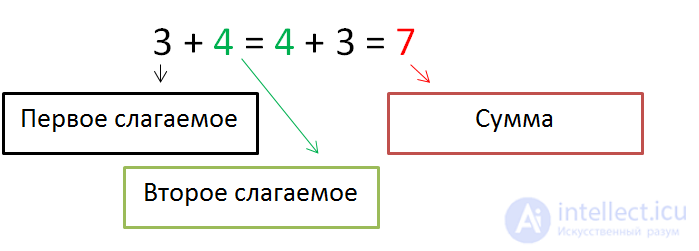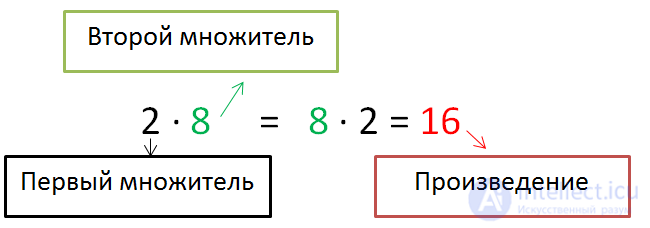Lecture
let's take the basic laws of arithmetic , which are otherwise called the properties of addition and multiplication.
From changing the terms of the sum does not change.
(The value of the sum does not change when the terms are rearranged.)

Examples:
The value of the sum does not depend on how the items are grouped.
(The order of the actions in calculating the sum does not affect the final result.)

For example:
Please note that this law is valid only if all actions in the example are addition!
From the change of places of multipliers the product does not change.
(The value of the product does not change when the factors are rearranged.)

Examples:
The value of the product does not depend on how the factors are grouped.
(The procedure for performing actions during the calculation does not affect the final result.)

By tradition, an example:
To multiply the amount by a number, you can multiply each of the terms by this number, and then add the resulting works.

For example:
Comments
To leave a comment
Arithmetic
Terms: Arithmetic